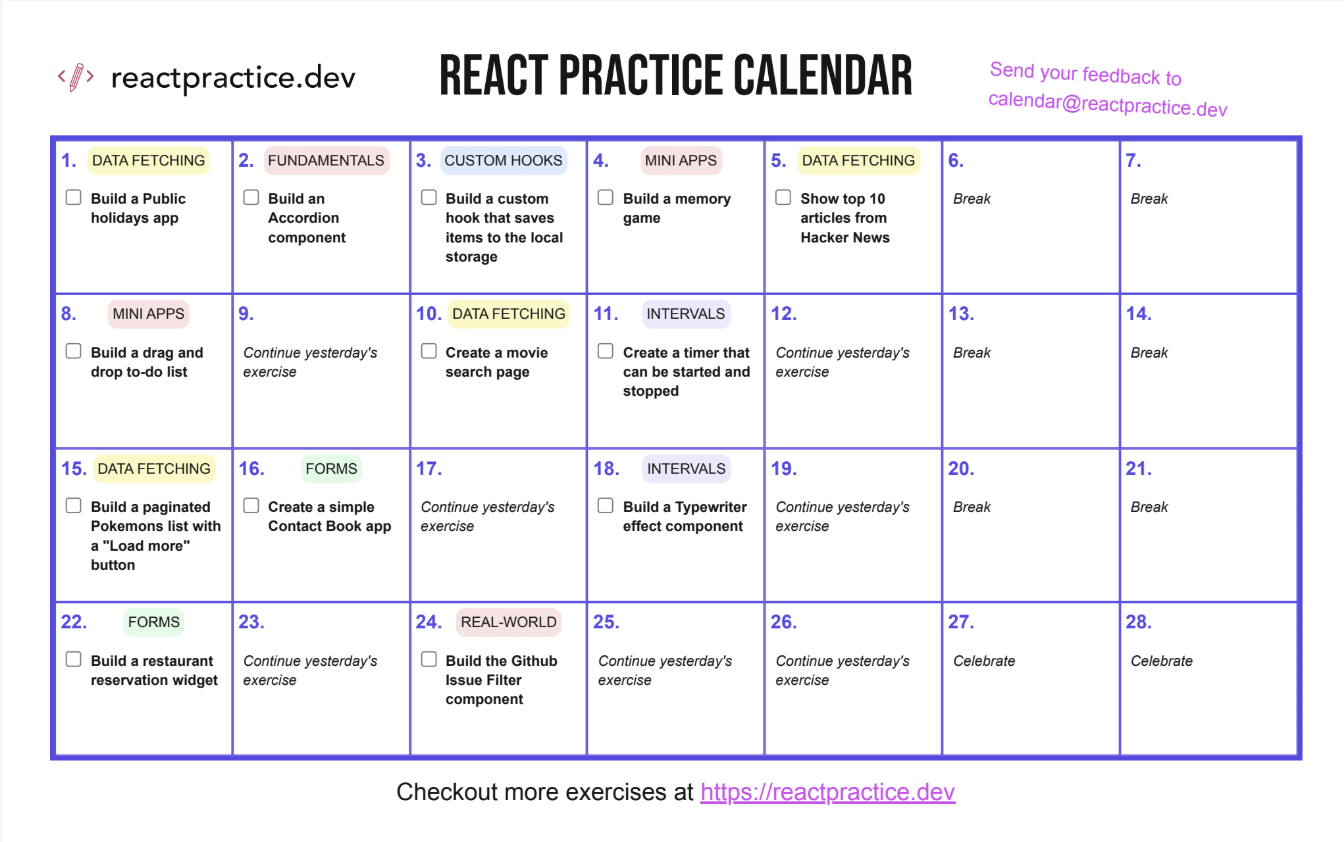How to use json-server as a backend for your practice apps
Building a custom backend for your apps can be fun and is definitely something I recommend doing at some point. But when you're in the middle of learning React and you just want to practice frontend concepts, it's great if you don't have to code a backend from scratch.
This is where json-server comes in - it's a simple backend server that allows you to have a full REST API based on just a JSON file you define locally. You can add, edit, remove items from the json collection, and the file gets updated, acting like a local database.
Here's an example "database" for a notes app:
// db.json
{
"notes": [
{
"id": 1,
"title": "jane's phone number",
"content": "555 666 777"
},
{
"id": 2,
"title": "shopping list",
"content": "- milk\n-strawberries"
}
]
}
When you start the json-sever with by calling json-server db.json, it will start a server at http://localhost:3000 with a REST endpoint dedicated to the notes, for doing CRUD operations on them:
GET /notes
GET /notes/:id
POST /notes
PUT /notes/:id
PATCH /notes/:id
DELETE /notes/:id
This is usually all you need to get started with your frontend app!
For development, I usually recommend adding the command to start the server to your package.json, so you can run it with a simple npm run backend-server:
// package.json
...
"scripts": {
"dev": "vite",
"test": "vitest",
...
"backend-server": "json-server db.json"
},
...
And what if you want to simulate a server error?
The simplest way is to just stop the server with Ctrl+C - then the frontend will get a 500 Server Unavailable error.
Another way is to use Chrome's Network tab > throtling to simulate being offline.
Alternatively, if you're looking to throw validation errors, you could set up an express sever that uses json-server as a module, but it's probably not worth the trouble for most practice apps.
I hope you find this useful!



Member discussion